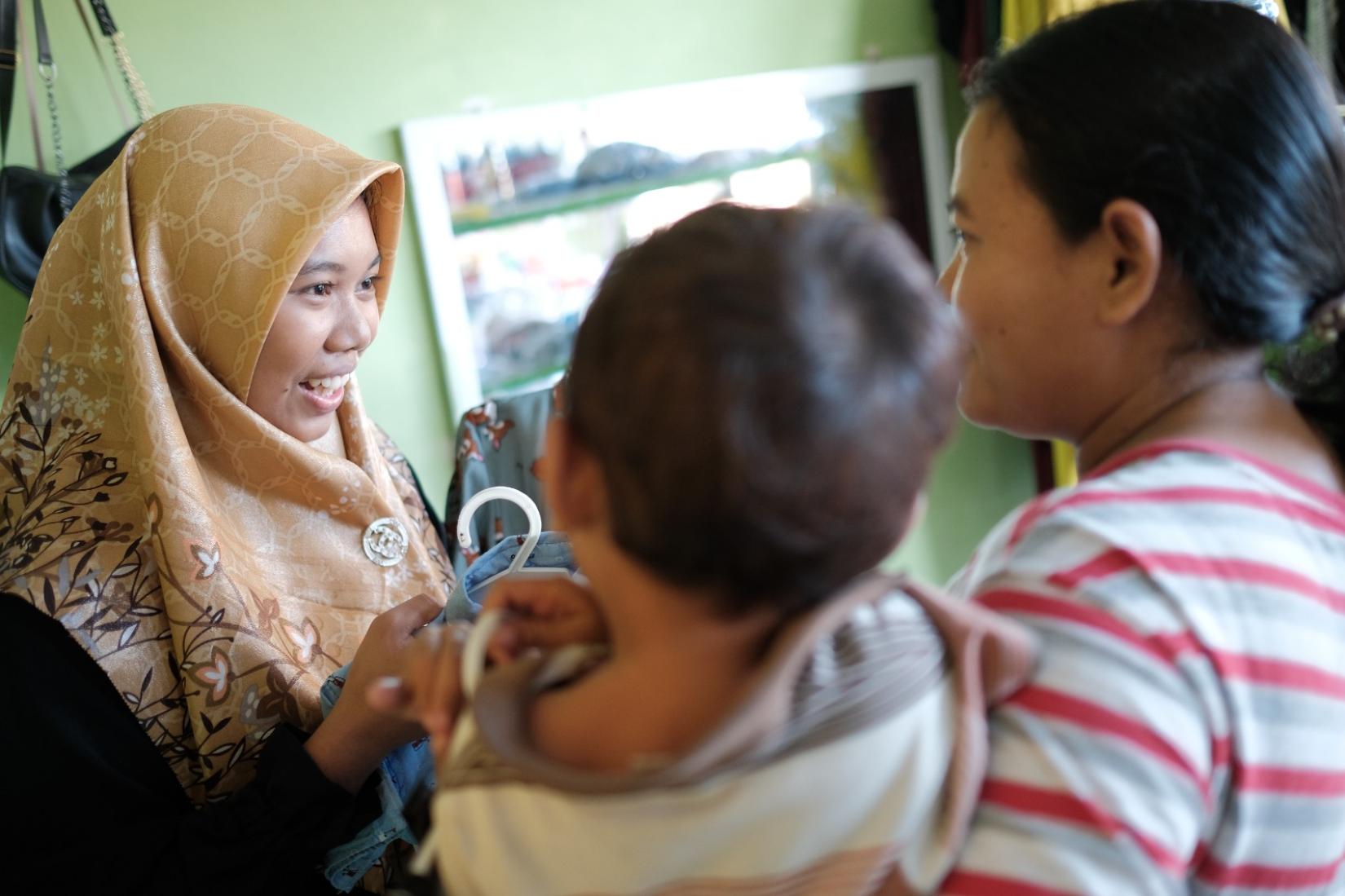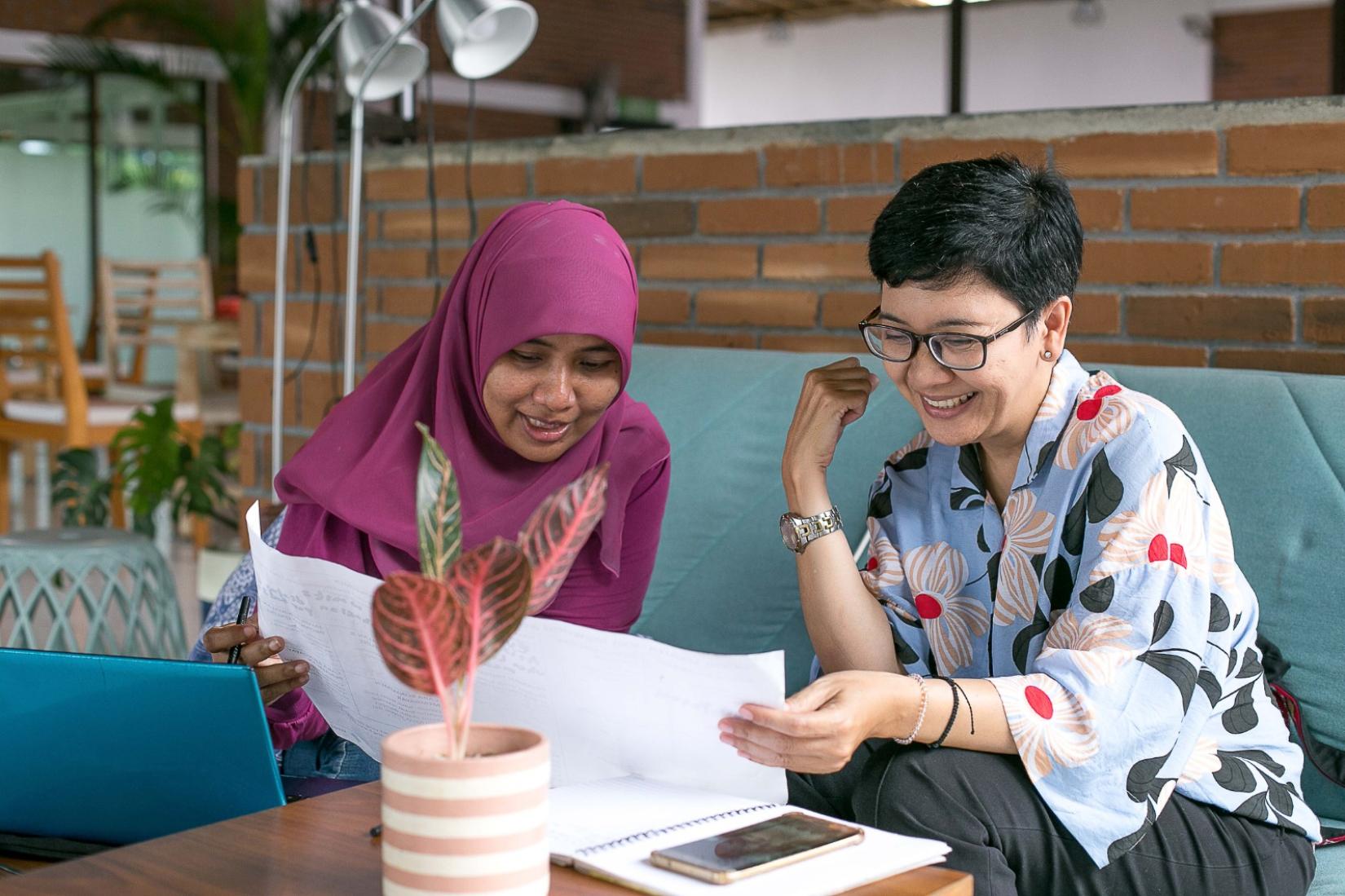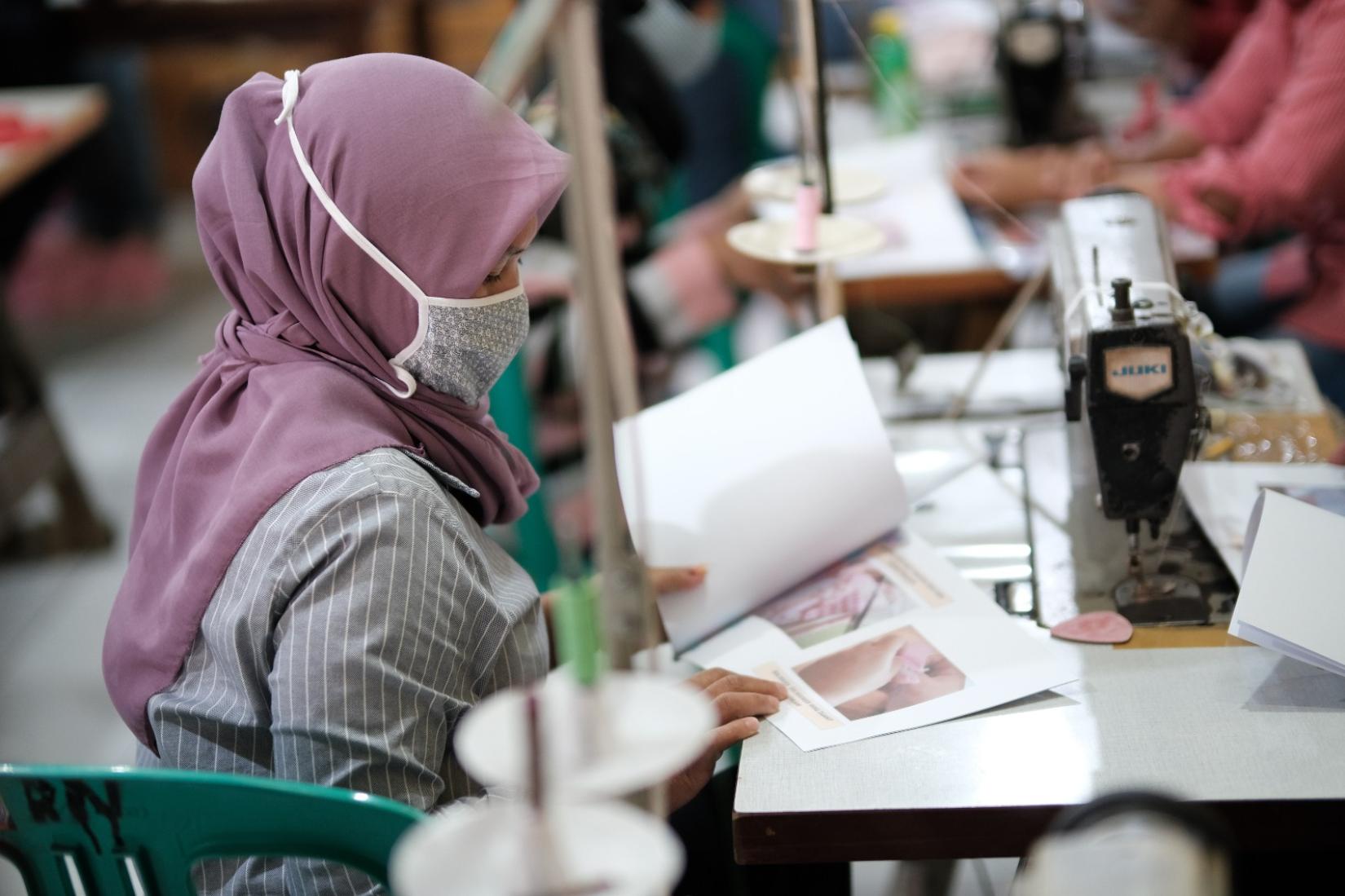International Womans’ Day 2024: Investing in Women, a Catalyst for Economic Growth
08 March 2024
-----

March 7, 2024 -- Ahead of International Women's Day, March 8, we are reminded of the significant progress women have made globally in breaking down barriers and advancing gender equality. From advocating for human rights to gaining ground in education and leadership roles, the progress is undeniable. Yet, challenges to the achievement of gender equality remain.
Billions of women and girls worldwide continue to face marginalization, injustice, and discrimination. Moreover, global crises disproportionately impact women and girls, magnifying their hardships in areas affected by conflict, climate change, poverty, and hunger. Statistics reveal a grim reality: in every region of the world, women are more likely to face hunger than men.
Israel Military Operation in Gaza, has claimed over 30,000 lives, seventy percent of whom are women and children. One million women have been displaced and 3,000 women have become widows.
In Indonesia, gender parity in education has been achieved, but in some areas progress has been slow. According to BPS data in 2023, women labour force participation is 54.4%, significantly below the participation of men. In the entrepreneurial world, there are 64% women, but they only occupy micro-scale businesses.
Additionally, the prevalence of violence and harmful practices against women continues to be a pressing issue, with the 2021 National Survey on Women's Life Experiences reporting that 1 in 4 women aged 15-64 years have experienced violence in their lifetime.
Gender inequality also affects women and girls’ ability to make their own decisions about their own body, health, and future. When the sexual and reproductive health and reproductive rights of women and girls are not fulfilled, the consequences are dire. A mother dies every hour due to complications from pregnancy and childbirth. More than half of daughters of women aged 15-49 years who live together have undergone female genital mutilation/cutting (FGM/C). One in 12 of women aged 20-24 were married before turning 18.
Only when women and girls can exercise her bodily autonomy and make their own informed choices, can they achieve their full potential, participate fully in social, economic, and political spheres, and contribute to development.
UN Resident Coordinator Valerie Julliand emphasizes the critical role of investment in advancing gender equality, stating, "We need public and private investment in programs to end violence against women, ensure decent work, and drive women’s inclusion and leadership in digital technologies, peacebuilding, climate action, and across all sectors of the economy."
This year theme “Invest in Women: Accelerate Progress”. The United Nations estimates that $360 billion per year is required to close the gender gap in education alone, an investment that could significantly boost global GDP by 20% and create 300 million new jobs by 2035.

The United Nations Works in Indonesia for Gender Equality
The United Nations in Indonesia has been at the forefront of supporting Indonesia government in championing gender equality through various initiatives. In the 2022 United Nations Annual Report for Indonesia, launched by the Ministry of National Development Planning/Bappenas, the UN's efforts in gender equality are highlighted.
UN Women has supported more than 7000 women entrepreneurs by providing them access to entrepreneurship and digital skills development and access to the community of learners. Furthermore, the Women's Empowerment Principles (WEPs), led by UN Women and the Global Compact, are now signed by 9,000 companies globally, including 182 companies in Indonesia, serving as a guide to the private sector to integrate gender equality into business practices and culture.
Collaborative efforts between UN agencies and Indonesian ministries have led to significant strides in addressing gender-based challenges. The UNFPA supports the Ministry of Women's Empowerment and Child Protection (KemenPPPA) in conducting the National Survey on Women's Life Experiences to deepen understanding and enhance policy responses to violence against women, and strengthen services for gender-based violence survivors.
Furthermore, UNDP has worked tirelessly to ensure gender equality is incorporated in Indonesia's agenda for achieving the SDGs. One notable example, UNDP has collaborated with the Government of Indonesia and other partners to publish guidelines and standards for gender considerations in various sectors, including artisanal and small gold mining (ASGM) and climate budgeting, showcasing the commitment to developing and advocating gender-responsive policies.
UNICEF's roadmap for safely managed drinking water included integrating equity, gender equality, and job opportunities. UNAIDS, with the Indonesia Positive Women Network (IPPI), engaged community organizations in revising the Criminal Code to safeguard HIV and gender equality programs. UNESCO analyzed Indonesia's film sector for gender inclusivity, enhancing efforts with a Gender Equality and Social Inclusion syllabus for film schools, marking a significant step toward comprehensive gender equality in Indonesia.
Investing in women and girls is not merely an moral imperative but a strategic investment that yields substantial dividends for economic growth and sustainable development.
“As we observe International Women's Day, let us reaffirm our commitment to accelerating efforts towards achieving gender equality and empowering women and girls across the globe, “ Valerie added.




